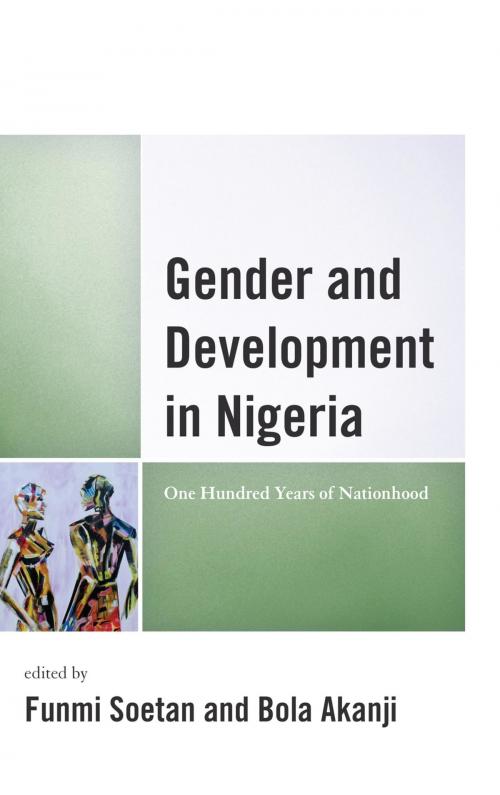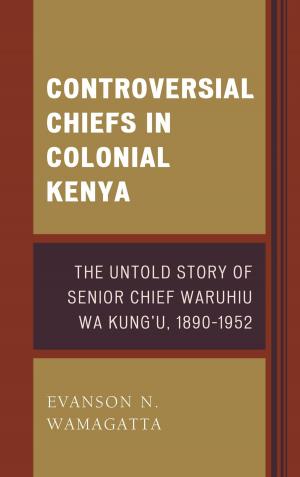Gender and Development in Nigeria
One Hundred Years of Nationhood
Nonfiction, History, Africa, Social & Cultural Studies, Political Science, International| Author: | Bolanle Awe, Adetunji Ogunyemi, Monica Orisadare, Tolu Osinubi, Bukola Daramola, Olanike Deji, Dorcas Alabi, Helen Aderemi, Stephen Adegbite, Foluso Adeyinka, Yetunde Aluko, Funmi Soetan, Bola Akanji | ISBN: | 9781498564762 |
| Publisher: | Lexington Books | Publication: | August 15, 2018 |
| Imprint: | Lexington Books | Language: | English |
| Author: | Bolanle Awe, Adetunji Ogunyemi, Monica Orisadare, Tolu Osinubi, Bukola Daramola, Olanike Deji, Dorcas Alabi, Helen Aderemi, Stephen Adegbite, Foluso Adeyinka, Yetunde Aluko, Funmi Soetan, Bola Akanji |
| ISBN: | 9781498564762 |
| Publisher: | Lexington Books |
| Publication: | August 15, 2018 |
| Imprint: | Lexington Books |
| Language: | English |
In this edited volume, Nigerian scholars from a variety of disciplines examine the relationship between gender and Nigeria’s pathways of development in the last 100 years of its nationhood. This analysis is set against the background of unequal power dynamics between women and men, and specifically the ways in which social, cultural, political, and economic construction of gender has influenced Nigeria’s course of development through her colonial and post-colonial history. The influence of the nature of economic governance, policy, and institutional frameworks, the nature of resource availability and (re)distribution between women and men in terms of goods and services, knowledge and skills, policies and budgets, and the outcomes and impacts for women and men are seen in terms of women’s economic empowerment, equal participation and development benefits. This rich collection of empirical works therefore provides not just the rhetoric but the evidence to indict gender power relations in Nigeria, especially at the institutional level. This volume unpacks and explores this recurrent problem with a the goal of identifying new pathways for gender relations.
In this edited volume, Nigerian scholars from a variety of disciplines examine the relationship between gender and Nigeria’s pathways of development in the last 100 years of its nationhood. This analysis is set against the background of unequal power dynamics between women and men, and specifically the ways in which social, cultural, political, and economic construction of gender has influenced Nigeria’s course of development through her colonial and post-colonial history. The influence of the nature of economic governance, policy, and institutional frameworks, the nature of resource availability and (re)distribution between women and men in terms of goods and services, knowledge and skills, policies and budgets, and the outcomes and impacts for women and men are seen in terms of women’s economic empowerment, equal participation and development benefits. This rich collection of empirical works therefore provides not just the rhetoric but the evidence to indict gender power relations in Nigeria, especially at the institutional level. This volume unpacks and explores this recurrent problem with a the goal of identifying new pathways for gender relations.















